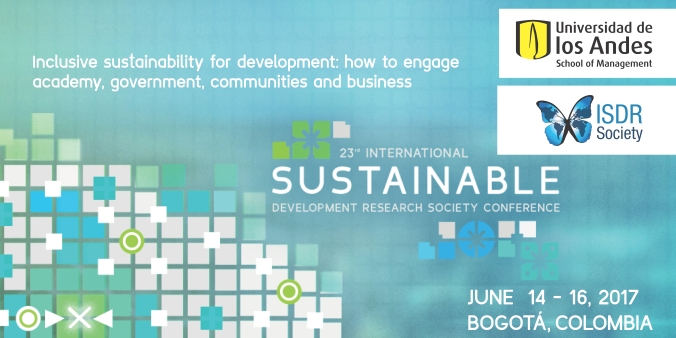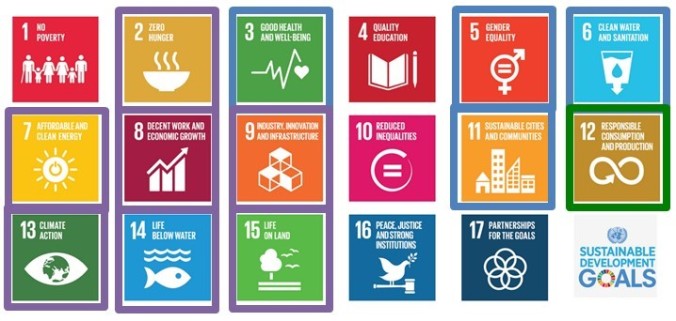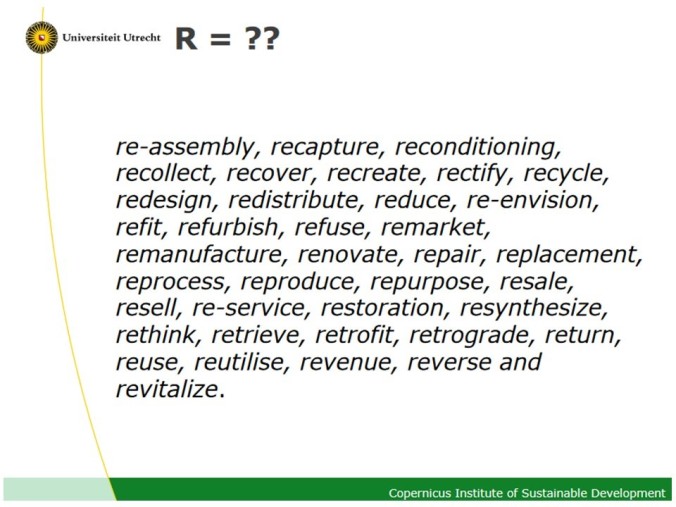By Anne Velenturf, Pauline Deutz and Andrea Cecchin
The International Sustainable Development Research Society (ISDRS) held a very successful annual conference last week in Bogotá, Colombia. With over 200 presentations from every corner of the world and 9 key notes plus a welcome by the President of Colombia and Nobel Peace Prize Laureate, Juan Manuel Santos, the conference reflected the diversity and crucial role of the UN Sustainable Development Goals for environmental health, peace keeping and the circular economy.

The circular economy continues to be a popular topic for ISDRS. A special track on Circular Economy, Industrial Ecology (resource management and sustainable regional economic development) included 12 presentations on this subject. Additionally, other sessions contained 5 presentations on circular economy while there were a further 15 talks on waste and resource management and/or sustainable production and consumption.
The fact that the circular economy and sustainable waste and resource management resonated throughout the ISDRS conference should not be a surprise. Analysis of the UN Sustainable Development Goals (SDGs) show that 12 of the 17 goals contain targets to improve waste and resource management directly, excluding targets on for example education, policy and finance which can indirectly enhance sustainable waste and resource management. The global goals on affordable and clean energy, clean water and sanitation, and life below water and on land contain the highest proportions of targets aiming to alter waste and resource flows in our economy. Overall the UN SDGs propose far-reaching changes for industry.

This emphasises the importance of circular economy and industrial ecology for sustainable development. Presentations at the ISDRS conference indicated, however, that circularity cannot be a dogma because it might not be the best strategy for achieving resource efficiency or sustainability at all times. Instead, we need to consider circular economy in the broader perspective of sustainable development.
Circular economy presentations at the ISDRS included both developing and developed country perspectives. In both cases the construction industry is an area of concern, given the scale of waste produced, but especially noting the continuing rate of urbanisation in developing countries such as Colombia. Additionally, in the context of developing countries the informal economy tends to play a significant role (both in waste management and construction).
Other talks indicated that there is a need to develop approaches fostering circular practices, such as industrial symbiosis, which reach beyond large companies. Context needs to be considered in industrial symbiosis evolution, with different pathways illustrated for urban and rural settings. Pathways are also likely to differ in developed and developing countries due to different socioeconomic and political conditions.
Such differences highlight the need for a flexible framework and specific implementation strategies for developed and developing countries. A common framework for circular economy does not exist yet, not least since various current frameworks propose different visions of sustainability. These differences are also reflected in the confusing range of terms used in circular economy discourse, as precise terminology is yet to be established.

Image source: Denise Reike, Walter Vermeulen and Sjors Witjes (2017) The circular economy: New or Refurbished as CE 3.0? – Exploring Controversies in the Conceptualisation of the Circular Economy through a Focus on History and Resource Retention Options. Presentation at ISRDS 14-16 June Bogotá, Colombia http://programme.exordo.com/isdrs2017/delegates/presentation/320/
Engagement with policy makers is also important to steer both the design and implementation of regulations, as was illustrated by case studies from tyre recycling and mining of legacy waste. A further presentation emphasised policy makers can be receptive to academic engagement, with an on-going two-way process of exchange the ideal way to manage this.
A lively discussion after the talks summarised suggestions for further circular economy and industrial ecology research:
- Social aspects related to circular economy
- Circular business models and business model innovation
- The role of participatory approaches as an essential part of implementing circular economies
- The socio-political implications and possibilities of shifting current production-consumption-use-waste practices
- The role of economic cycles in the adoption of a circular economy framework in national economies and industries
- Further research the role of geographic proximity in the establishment of industrial symbiosis
- Investigate the influence of geographical context on resource exchange networks
- Investigate the role and contribution of private brokers and governmental facilitators to foster industrial symbiosis
- Research to integrate urban symbiosis with industrial symbiosis
- Investigate the adoption of circular economy models for the construction sector, especially in developing countries with higher population growth in urban areas
- The role and contribution of the informal economy when designing and implementing a circular economy framework in developing countries
- The role of formal and informal institutions (for example regulation and the presence of collaborative culture respectively), also in relation to the implementation of law enforcement
- Adoption of circular practices by SMEs
We look forward to contributions to continue the debate at next year’s conference, which will be hosted by the University of Messina, Italy, 13-15 June 2018.
Anne Velenturf is the coordinator of the Resource Recovery from Waste programme at the University of Leeds and managing director of 4Innovation Research and Consultancy. Pauline Deutz is a Reader at the School of Environmental Sciences at the University of Hull and vice president of the International Sustainable Development Research Society. Andrea Cecchin is a Fellow at the Archives of Sustainability at Ca’Foscari University of Venice and Project Researcher at Pontifical Catholic University of Ecuador.